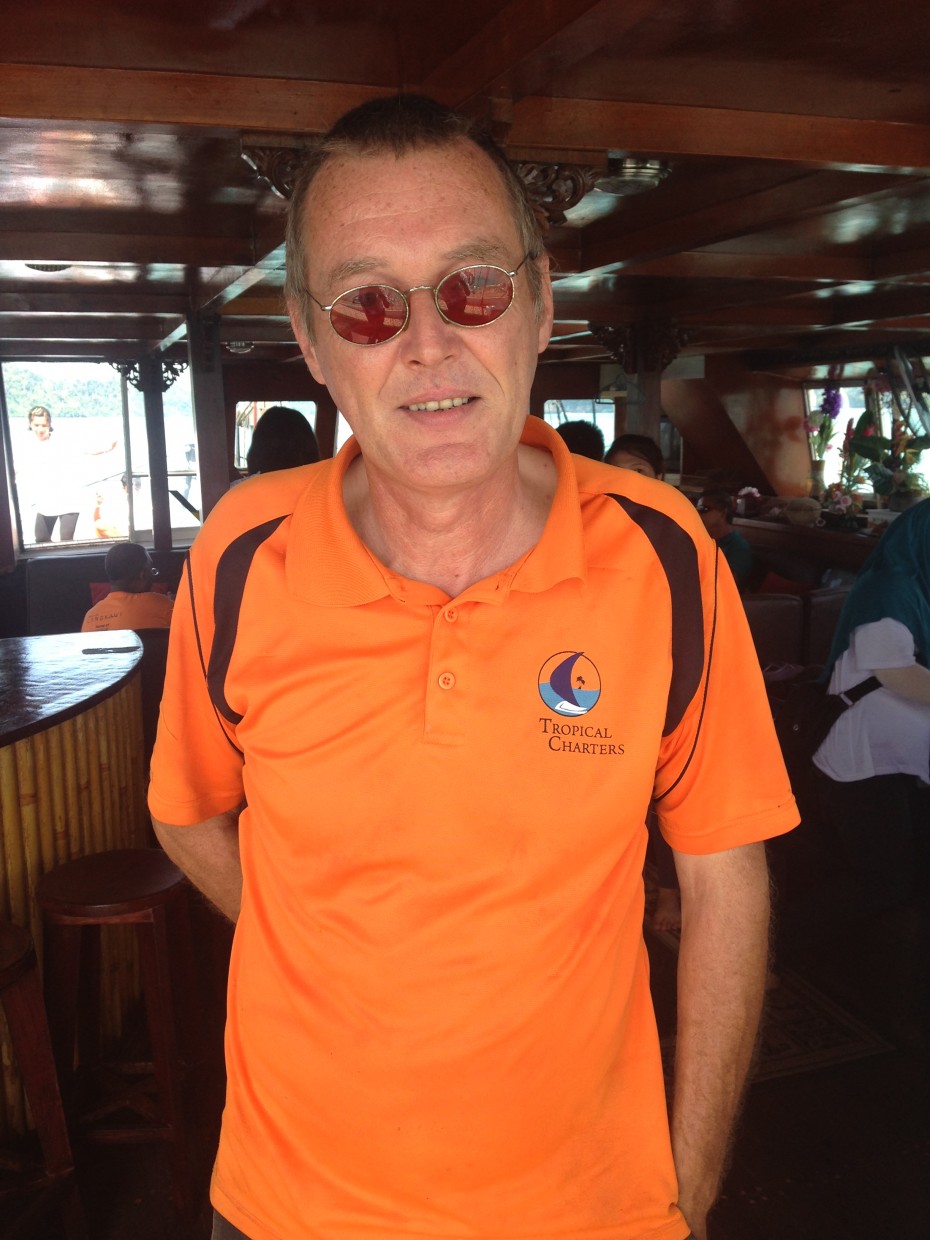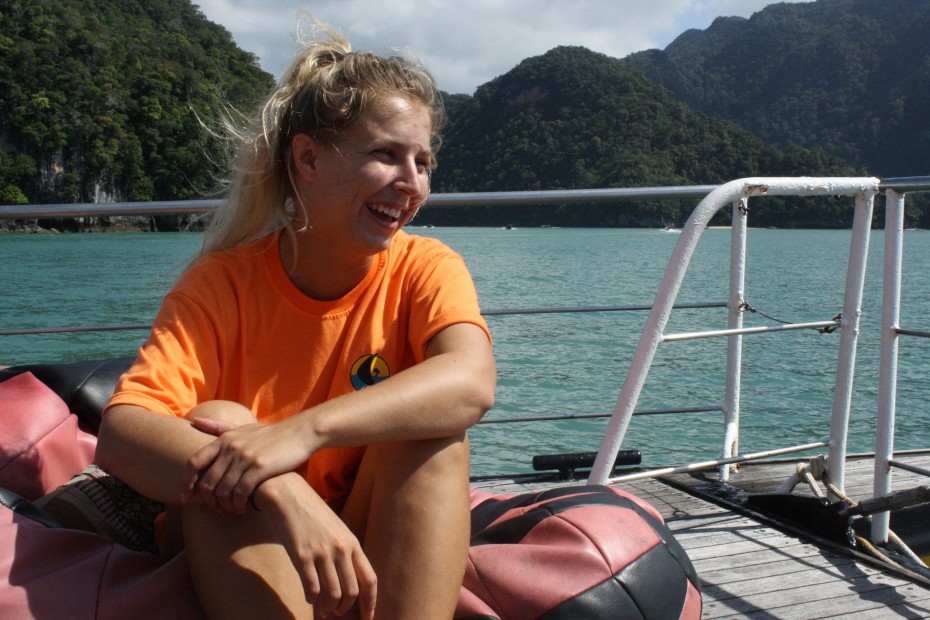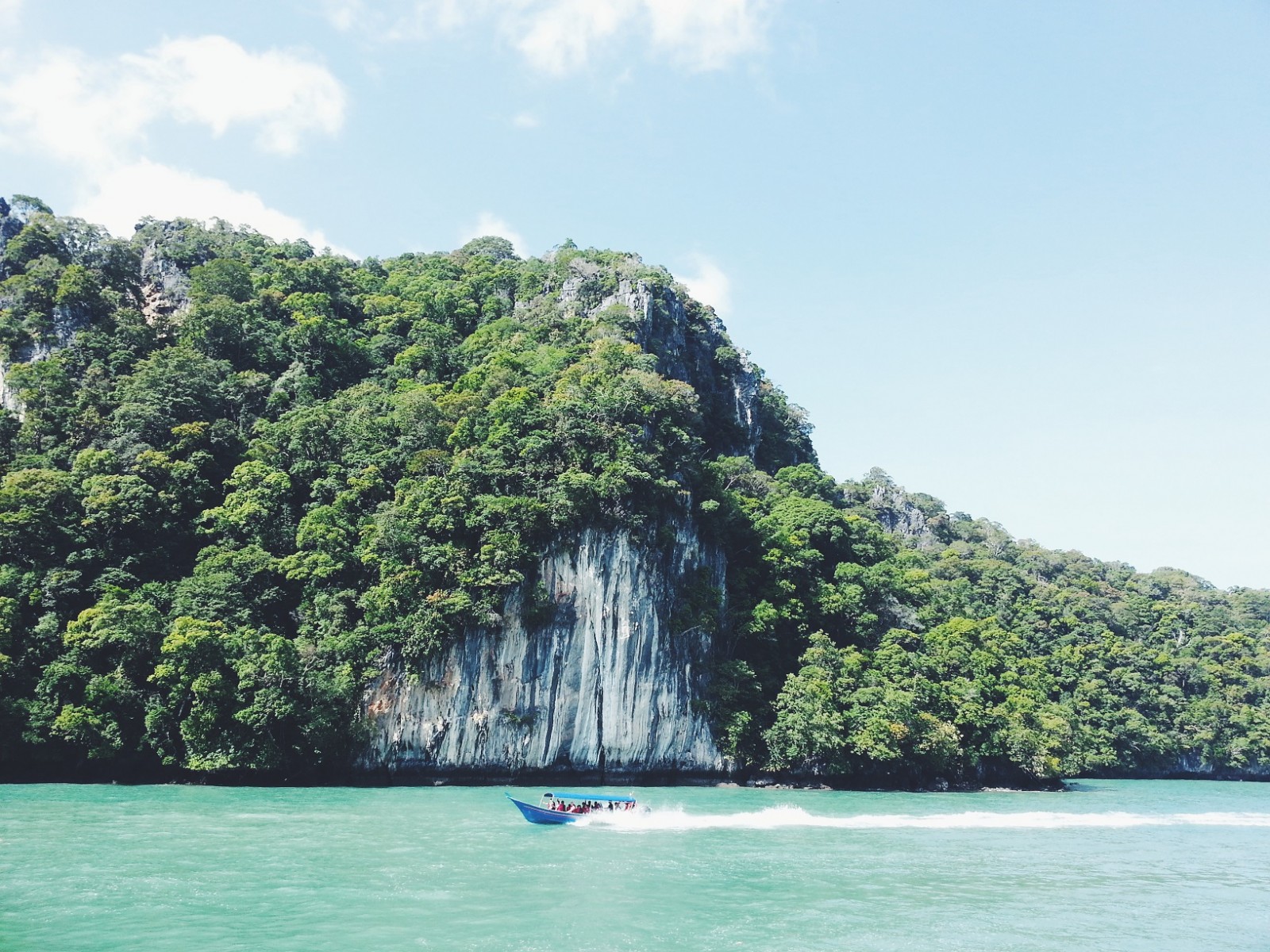Earlier in July, Langkawi’s Geopark status was threatened when Unesco issued the island a “yellow card” for its failure to abide by conservation and sustainability requirements. It was a big blow to the island and its tourism industry.
The ruling hit local travel company Tropical Charters – which earlier this month hosted 37 BRATs Langkawi participants on an educational cruise – especially hard. After all, the company depends on Langkawi’s natural bounty for its cruise tours.
Clearly, something had to be done – even if only at a personal level. And that is the seed of thought Tropical Charters hopes to spread in its efforts to help ensure the conservation and sustainability of Langkawi’s environment.
“The ruling was fuelled mainly by the way our mangrove forests were being treated here. But I can only speculate, as I have not dealt with the mangroves much,” said German crew member Josef Van De Kamp, 55, who has been working with the company for eight years.

Tropical Charters crew member Josef Van De Kamp believes Malaysians are now starting to realise the importance of protecting Langkawi’s ecosystem.
“We can only do our part here on the southern region of the island. Still, we took it as a cautionary tale that Langkawi’s ecosystem should be better protected.” To help achieve that Tropical Charters started sponsoring educational cruises for students aged 13 to 17 – like the one the BRATs were on.
“We have organised six or seven trips so far, and we hope our efforts help keep the students informed about Langkawi’s pertinent role as a Unesco Geopark,” said the company’s director Kamal Ibrahim.
In fact, this is more than a corporate social responsibility initiative to him. Kamal asserts that the educational cruises play an important role in educating the younger generation about their roles in conserving Langkawi’s natural heritage.
“We’ve also partnered with the Langkawi Business Association, a non-governmental organisation to set up the Pantai Tengah Green Community, which has launched several clean-up activities where volunteers gather to de-clutter the beaches,” he added.
Aboard the cruise, the crew members also play a vital part in echoing the same message through their interactions with the many passengers, both local and international, that they meet on an almost daily basis.
Felicitas Koppers, who is also from Germany and serves as a part-time medical officer on the cruise ship (she is a chiropodist with her own clinic in Langkawi), revealed that they have also adopted a recycling method widely used in her native country to process the trash generated on the cruise.
The cruise offers food and drinks onboard and the ship can carry as many as 65 passengers so, naturally, a lot of trash is generated.
Hence, garbage is segregated into paper, plastic, metal and organic waste and kept safely onboard until the cruise docks, Koppers said. Still, there are some who ignore their advice and throw rubbish into the ocean.
“People don’t dispose of their rubbish properly because they fail to realise the severe consequences of their actions,” said crew member Olivia Laurent, 22, from France, adding she was surprised at how lax locals were with proper garbage disposal.

Olivia Laurent was surprised by the lack of consideration for the environment among tourists and locals alike in Langkawi which is why she and her fellow Tropical Charters crew members do their best to educate their passengers on the implications of polluting the seas.
“We make it a point to advise them to consider the implications of their actions, as it can pollute the sea and be dangerous to marine life.”
Nevertheless, a large part of the responsibility of sustaining Langkawi’s beautiful ecosystem lies in the hands of the younger generation, according to Selvakumaran Rajaminikan, a 52-year-old nature enthusiast who was brought onboard to give the BRATs an update on the island’s precarious situation.
As young people are the leaders of tomorrow, he believes they have to be properly educated on environmental issues so they can make informed decisions in the future.
“I would go so far as to say the younger generation has a duty to help sustain the environment. And to do this, they must work together,” he said.
The genuine concern demonstrated by the Tropical Charters crew on environmental sustainability is indeed inspiring. They harbour a hope that the importance of environmental sustainability will be inculcated amongst the public and become a way of life.
“I believe we have hope of restoring Langkawi to its former glory. Malaysians in particular have shown tremendous support so far,” said Van De Kamp.














Tell us what you think!